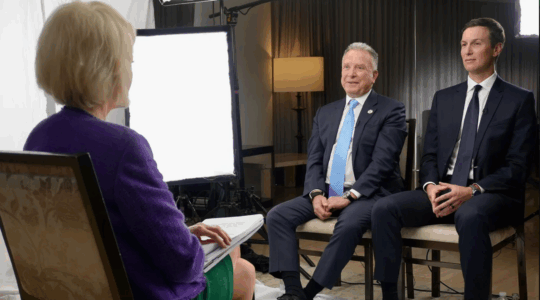JERUSALEM (JTA) — Residents of some Jewish settlements can become citizens of Palestine, the Palestinian Authority’s chief negotiator told an Israeli newspaper.
Ahmed Qureia In an interview with Ha’aretz said that major settlement blocs such as Ariel, Ma’aleh Adumim and Givat Ze’ev "must also be part of Palestine" in order to guarantee territorial contiguity and access to historical sites.
"They could hold Palestinian and Israeli nationalities. If they want it — welcome," he said. "Israeli settlements in the heart of the territories would be a recipe for problems. Israel evacuated all the settlements in Yamit and in the Gaza Strip. All the prime ministers who negotiated with Syria, including Netanyahu, agreed to evacuate all the settlements from [the Golan] Heights. So why is it so difficult for you to evacuate the settlements in the West Bank?"
Qureia said there would be no renewal of peace negotiations with Israel "without a complete cessation of the settlements, including what you call ‘natural growth,’ " as well as evacuation of outposts established since 2001.
He said the Palestinians will not recognize Israel as a Jewish state.
"Call your state whatever you wish — democratic or non-democratic, Jewish or non-Jewish," Qureia said. "It’s not fair to demand that we recognize you as the state of the Jewish people because that means an evacuation of the Arabs from Israel and a predetermination of refugees’ future before the negotiations are over. Our refusal is adamant."
Qureia threatened that without progress on the Palestinian peace track, Israel will not make progress with Syria or Lebanon. He also said that the Palestinians expect to have full sovereignty over the Temple Mount, which they call Haram al-Sharif.
The negotiator also said that a national unity government with Fatah and Hamas "is a precondition for peace with Israel."
JTA has documented Jewish history in real-time for over a century. Keep our journalism strong by joining us in supporting independent, award-winning reporting.





